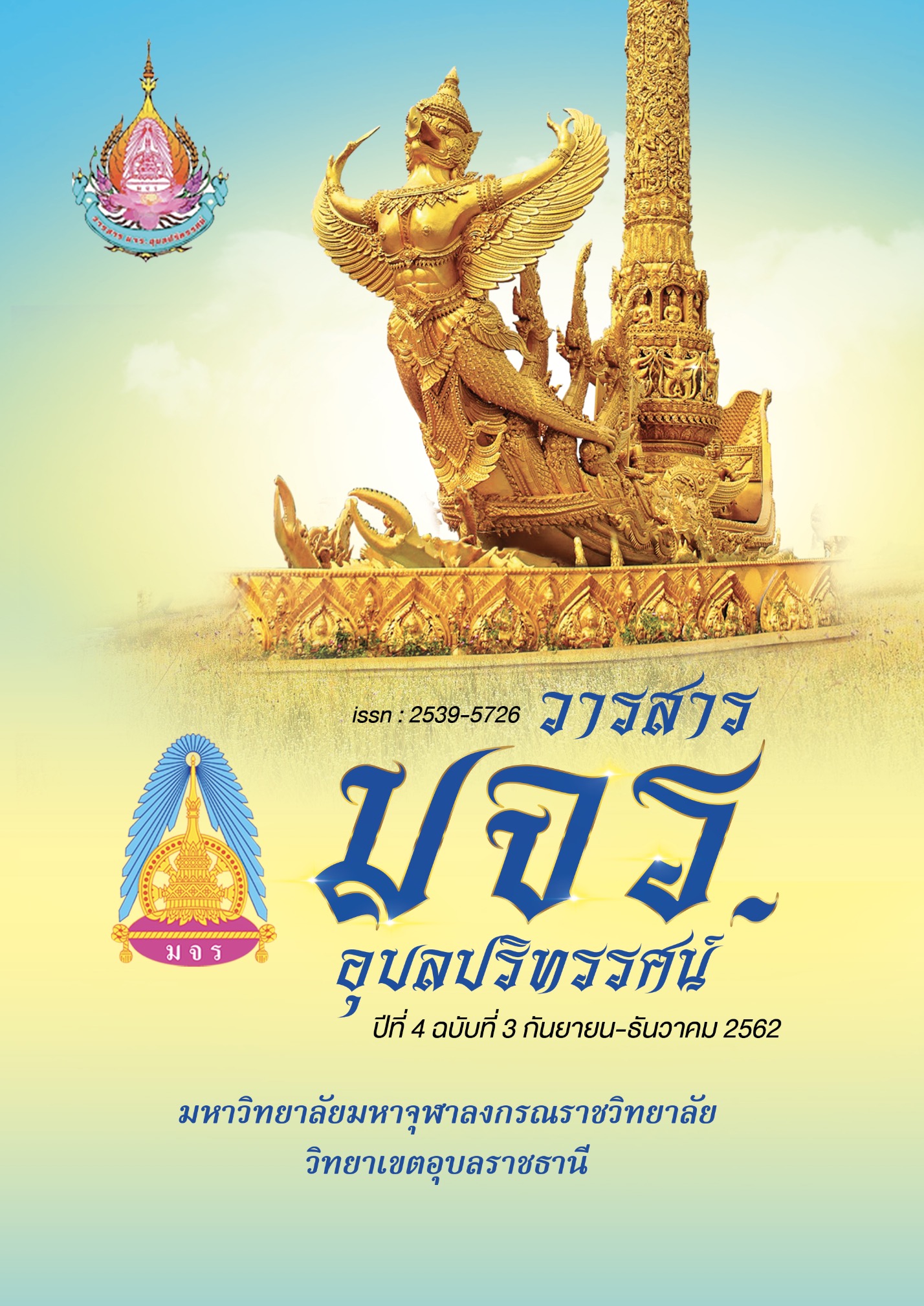Buddhist Ethics: Concept, Philosophy and Process of Reinforcing a Peaceful Society in Buriram Province
Main Article Content
Abstract
The concept, philosophy and Buddhist ethics that relate to peace in Theravada Buddhism are wholesome actions or behaviors that physically, verbally and mentally express in both within the mind and the external behavior in relation to the time, opportunity and location in daily life.
The process of reinforcing a peaceful society in accordance with the Buddhist ethics in Buriram province consists of the following steps: step 1, being a good person; step 2, being equipped with wisdom; step 3, having a balanced income; step 4, having a good health; step 5, having a good environment; step 6, having a good society; step 7, being free from criminality; step 8, setting up self-reliance fund; and step 9, strengthening the village committee.
Analysis of Buddhist ethics and the process of reinforcing a peaceful society in Buriram province include: Step 1, being a good person and step 7, being free from criminality, the process depends on observing the Precepts; Step 2, being equipped with wisdom, the process depends on the Panna 3 or the Three Wisdoms; Step 3, having a balanced income and step 8, setting up self-reliance fund, the process depends on Gihisukha 4 or The Four House-life Happiness; Step 6, having a good society and step 9, strengthening village committee, the process depends on the Disa 6 or the Six Directions of Social Relationship.
Article Details
References
การหย่าร้างในชุมชนโนนทัน อำเภอเมือง จังหวัดขอนแก่น”. บัณฑิตวิทยาลัย: มหาวิทยาลัยมหาจุฬาลงกรณราชวิทยาลัย.
พระธรรมปิฎก (ป.อ.ปยุตฺโต). (2546). พจนานุกรมพุทธศาสน์ ฉบับประมวลศัพท์. พิมพ์ครั้งที่ 11. กรุงเทพฯ : โรงพิมพ์มหาจุฬาลงกรณราชวิทยาลัย.
สุมาลี สุขอร่าม. (2554).“การประยุกต์ใช้พุทธจริยธรรมในการประกอบธุรกิจ กรณีศึกษา บริษัทแฟรีแลนด์สรรพสินค้าจำกัดนครสวรรค์”.บัณฑิตวิทยาลัย: มหาวิทยาลัย
มหาจุฬาลงกรณราชวิทยาลัย.
พระมหาสมชาย สิริจนฺโท (2548), พุทธธรรมเพื่อการพัฒนาคุณภาพชีวิตตามแนวทางของ
พระเทพวรคุณ (สมาน สุเมโธ), บัณฑิตวิทยาลัย: มหาวิทยาลัย
มหาจุฬาลงกรณราชวิทยาลัย.
มหาจุฬาลงกรณราชวิทยาลัย (2539),พระไตรปิฎกภาษาไทย ฉบับมหาจุฬาลงกรณราช
วิทยาลัย, กรุงเทพฯ : โรงพิมพ์มหาจุฬาลงกรณราชวิทยาลัย.


